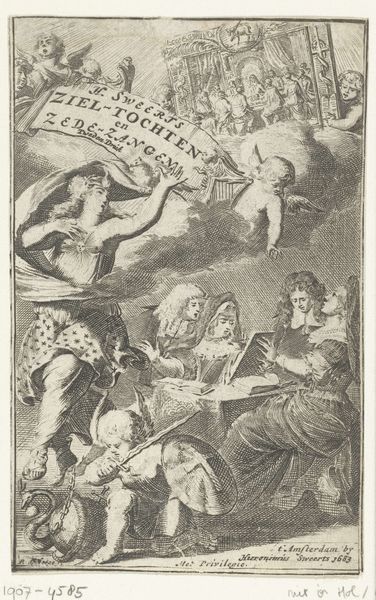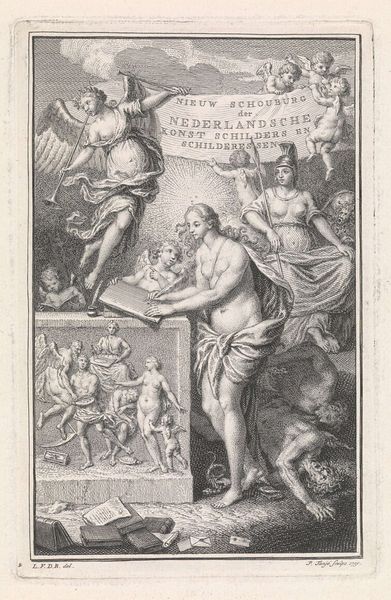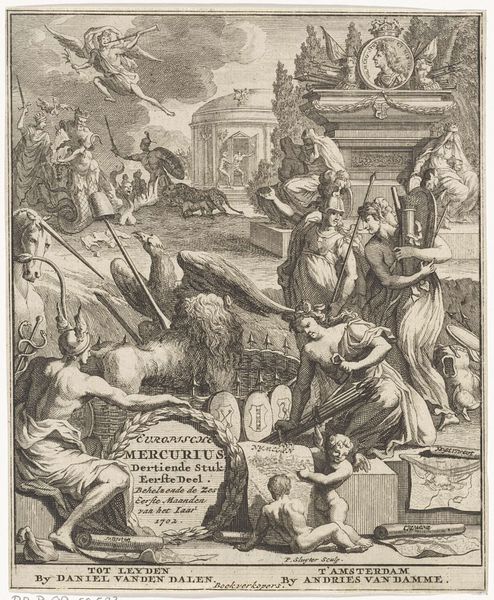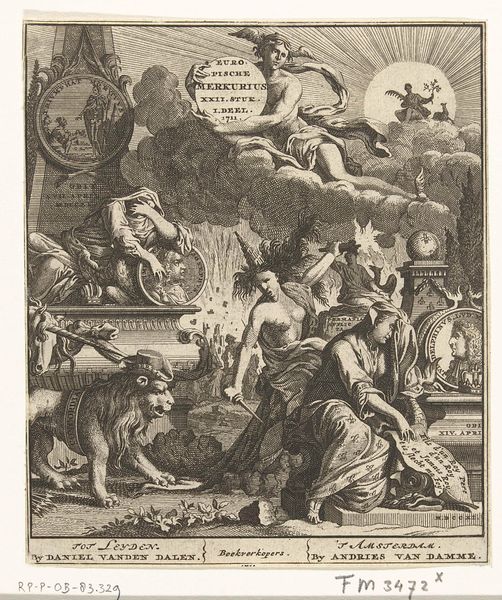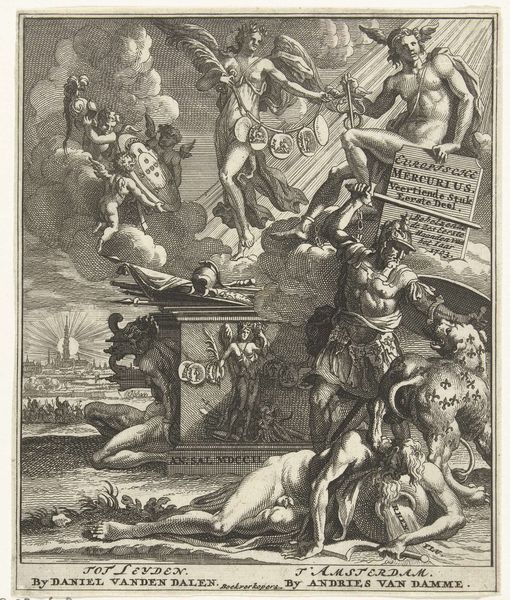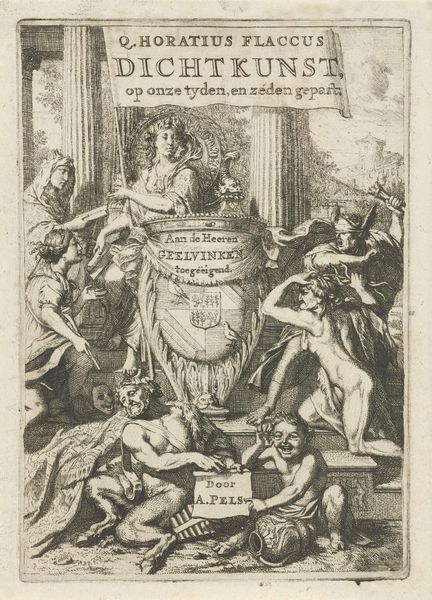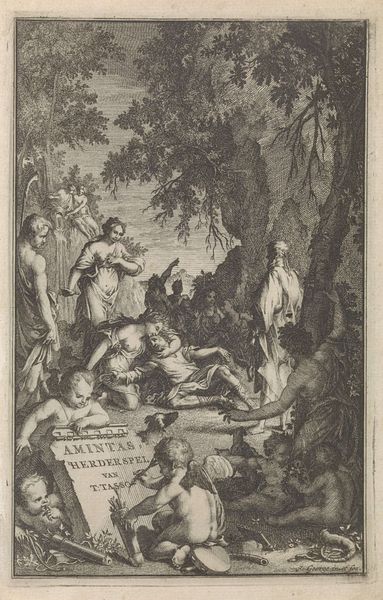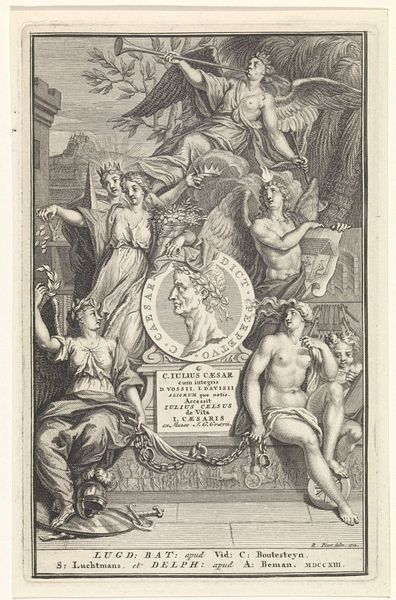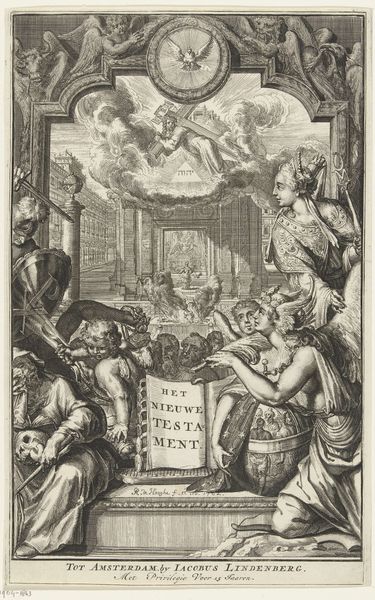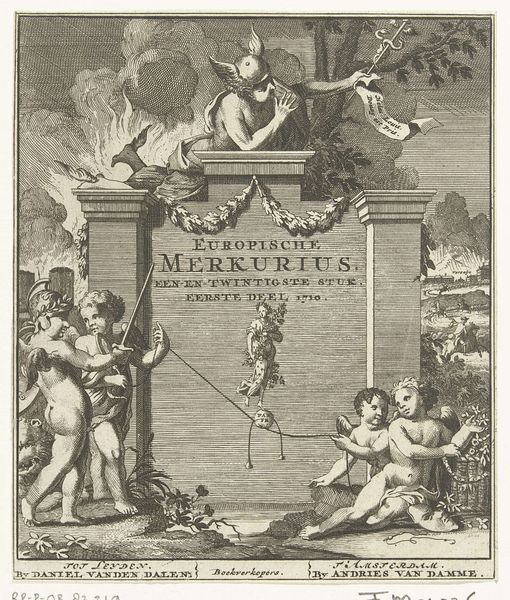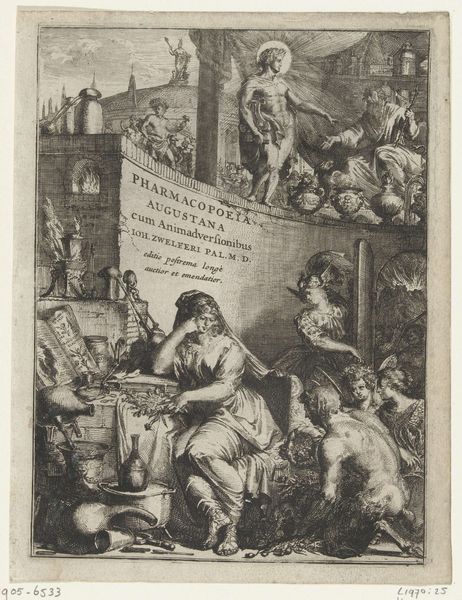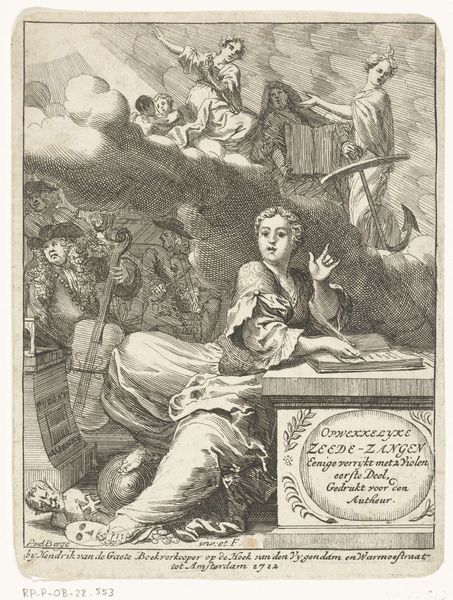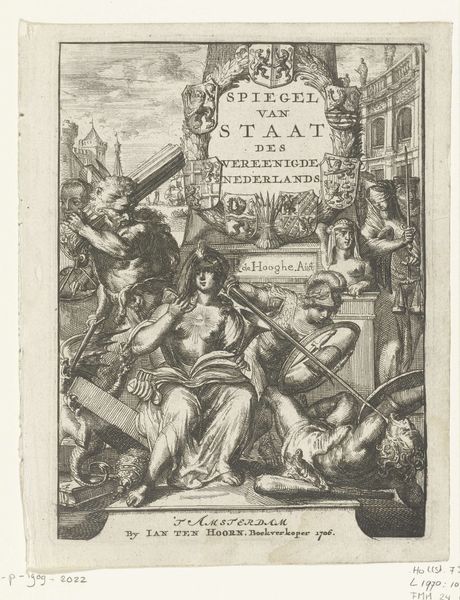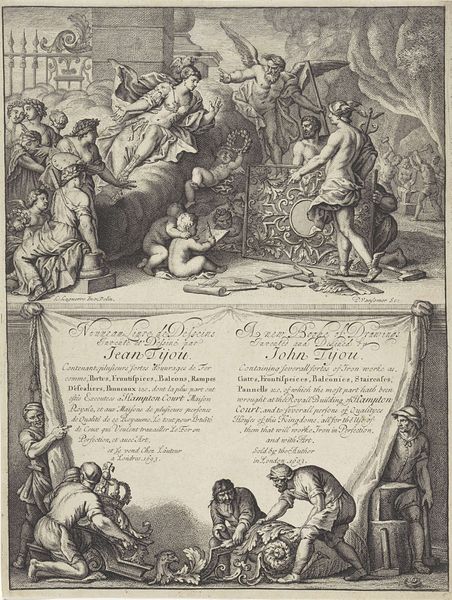
print, engraving
#
allegory
#
baroque
# print
#
figuration
#
line
#
history-painting
#
engraving
Dimensions: height 135 mm, width 82 mm
Copyright: Rijks Museum: Open Domain
This print, "Mythologische figuren", was created by Jacobus Harrewijn in the late 17th or early 18th century, using the intaglio process. With a sharp tool called a burin, the artist would have incised lines directly into a copper plate. This demanding technique requires great precision; the depth and density of the lines determine the tonal range of the final print. Once the engraving was complete, the plate would have been inked, and then wiped clean, leaving ink only in the engraved lines. Pressed against paper, the image is transferred, revealing Harrewijn's intricate composition. Look closely, and you can see the characteristic crispness of line that distinguishes engraving from other printmaking methods. Consider the labor-intensive nature of this process. Each line, each detail, meticulously rendered by hand. In its time, printmaking allowed for the wide distribution of images, democratizing art and knowledge. Understanding the material and processes employed by Harrewijn allows us to appreciate the skill involved, as well as the social context in which this image was created and disseminated.
Comments
No comments
Be the first to comment and join the conversation on the ultimate creative platform.
